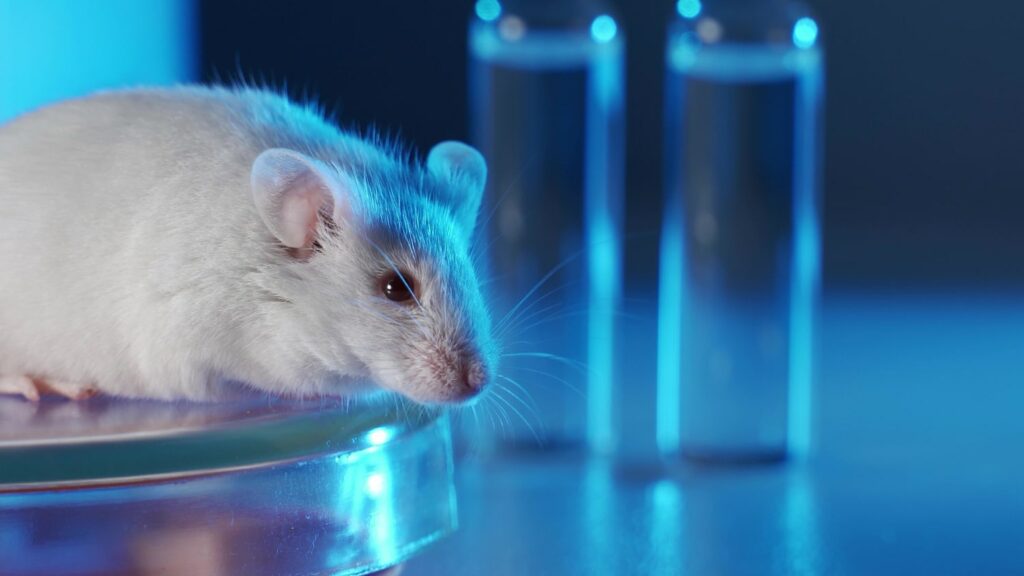Scientists have found that turning off a protein called IL-11 can increase the healthy lifespan of mice by nearly 25%. Researchers in the UK and Singapore discovered that blocking a critical inflammatory protein in mice can extend their lifespan, reduce age-related diseases, and make older mice less frail.
The team from the MRC LMS, Imperial College London, and Duke-NUS Medical School in Singapore studied mice without the IL-11 gene and found their lifespan increased by over 20%. They also treated older mice, about 55 years old, with an anti-IL-11 antibody, which blocked IL-11 effects, further proving the benefits.
The results published in Nature were dramatic. Mice given the anti-IL-11 drug from 75 weeks old until death had their median lifespan extended by 22.4% in males and 25% in females. The treated mice lived an average of 155 weeks compared to 120 weeks for untreated mice.
While these findings are in mice, they suggest the drugs could have a similar effect in elderly humans. Professor Stuart Cook from MRC LMS, Imperial College London, and Duke-NUS Medical School in Singapore said the treatment reduced deaths from cancer and diseases caused by fibrosis, chronic inflammation, and poor metabolism, with few side effects.
“The treated mice had fewer cancers and showed fewer signs of aging and frailty, with reduced muscle wasting and improved muscle strength,” he added.
Previously proposed life-extending drugs and treatments either had terrible side effects, didn’t work for both sexes, or extended life but not a healthy life. This doesn’t seem to be the case for IL-11.
While these findings are only in mice, the drugs could have a similar effect in elderly humans. Anti-IL-11 treatments are currently in human clinical trials for other conditions, offering exciting opportunities to study their impact on aging humans in the future.
The researchers have been studying IL-11 for many years. In 2018, they were the first to show that IL-11 is a pro-fibrotic and pro-inflammatory protein, overturning previous beliefs that it was anti-fibrotic and anti-inflammatory.
Assistant Professor Anissa Widjaja from Duke-NUS Medical School, Singapore, shared that the project began in 2017 when they noticed IL-11 levels increased with age in tissue samples.
These rising IL-11 levels contribute to adverse effects in the body, such as inflammation and preventing organs from healing. While the work was done in mice, they hope the findings will be relevant to humans, as similar effects have been seen in studies of human cells and tissues.
“This research helps us better understand aging and shows a potential therapy in mice that could extend healthy aging by reducing frailty and aging signs,” she said.
Previously, scientists suggested IL-11 might be an ‘evolutionary hangover’ in humans. It is important for limb regeneration in some animals but largely unnecessary in humans.
In humans, more IL-11 is produced after about age 55, leading to chronic inflammation, organ fibrosis, metabolism disorders, muscle wasting, frailty, and cardiac fibrosis, all signs of aging.
When multiple such conditions occur together, it is called multimorbidity, which includes lung disease, cardiovascular disease, diabetes, and vision and hearing decline.
Professor Cook said that IL-11 gene activity increases in all tissues in mice with age, causing multimorbidity and loss of function in the whole body, including eyesight, hearing, muscle strength, hair, heart, and kidneys.
Multimorbidity and frailty are significant global healthcare challenges. Currently, no treatment exists for multimorbidity other than treating each underlying cause separately.
Scientists caution that these results are in mice, and the safety and effectiveness of anti-IL-11 treatments in humans need further testing in clinical trials before use.
Journal reference:
Widjaja, A.A., Lim, WW., Viswanathan, S. et al. Inhibition of IL-11 signalling extends mammalian healthspan and lifespan. Nature. DOI: 10.1038/s41586-024-07701-9.
>>> Read full article>>>
Copyright for syndicated content belongs to the linked Source : Tech Explorist – https://www.techexplorist.com/blocking-inflammatory-protein-boosts-mouse-longevity/86292/#utm_source=rss&utm_medium=rss&utm_campaign=blocking-inflammatory-protein-boosts-mouse-longevity
